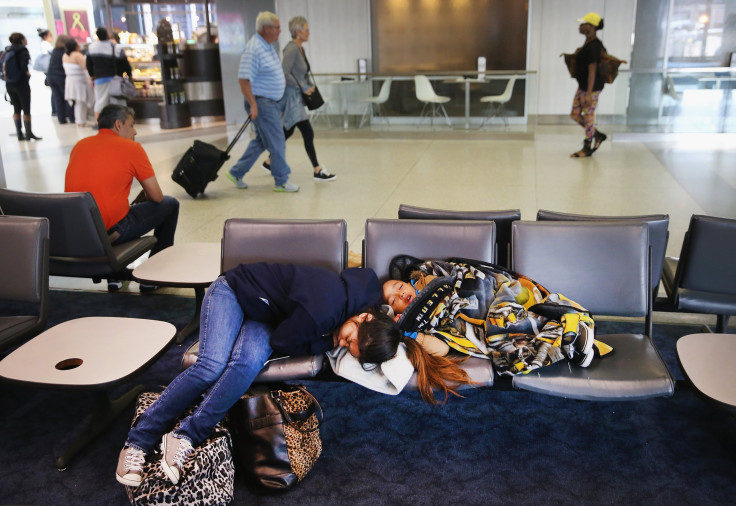After Chicago Air Traffic Control Fire, Canceled And Delayed Flights To Last For Days More

Flights in and out of Chicago will face more cancellations and delays this week as the fallout from Friday’s fire at a Chicago-area air-traffic control center persists. More than 400 flights to and from Chicago’s O’Hare International Airport -- the nation’s second-busiest by passengers after Atlanta -- were canceled Monday, flight tracking website FlightAware.com reported.
Some 2,300 flights were canceled nationwide Friday due to the shutdown of the air-traffic facility. On Saturday, some 1,100 flights were grounded nationwide while the number dropped to about 700 Sunday.
The FAA announced Sunday it is working to replace the central communications network at the Chicago Air Route Traffic Control Center in Aurora, Illinois, and expects to return the center to full service by Oct. 13. In the meantime, air traffic for the two Chicago airports, Midway and O’Hare, is being handled by nearby facilities in Illinois, Indiana, Wisconsin, Minnesota, Kansas and Ohio. Traffic at O’Hare was back to about 60 percent of its normal volume Sunday while Midway was back to 75 percent. But it will take a while for the airlines to get stranded passengers where they need to go.
“I wouldn’t be surprised if people are delayed multiple day, because on flights these days, the capacity is just not available,” said George Hamlin, an aviation industry consultant in Fairfax, Virginia. “The percentage of at-capacity planes are at record highs. When you cancel a flight that’s 80 percent full, it’s going to take a lot of flights to accommodate those stranded passengers.”
Domestic flights were likely affected the most, Hamlin said.
“The longer the journey, the greater the inconvenience. The legacy carriers are more prone to operate their international flights first. They probably erred in the direction of running the longer haul flights when possible. Many of those run just once a day.”
Regional carriers have taken the biggest hit, said FlightAware CEO Daniel Baker.
“Passengers most likely to be impacted are on regional carriers operated under names like United Express and American Eagle," Baker told USA Today. "Anyone connecting in Chicago on those airlines in the next week or two should contact their airline and attempt to re-route through another hub."
Friday’s fire was set allegedly by Brian Howard, a contract employee at the facility in Aurora, in an attempted suicide. An FBI affidavit filed in federal court says Howard posted a note to Facebook saying he planned to kill himself and take down ZAU, which is the control center’s three-letter call signal. Howard used gasoline to start the fire, which put out of service all radio frequencies at the control center.
© Copyright IBTimes 2024. All rights reserved.











